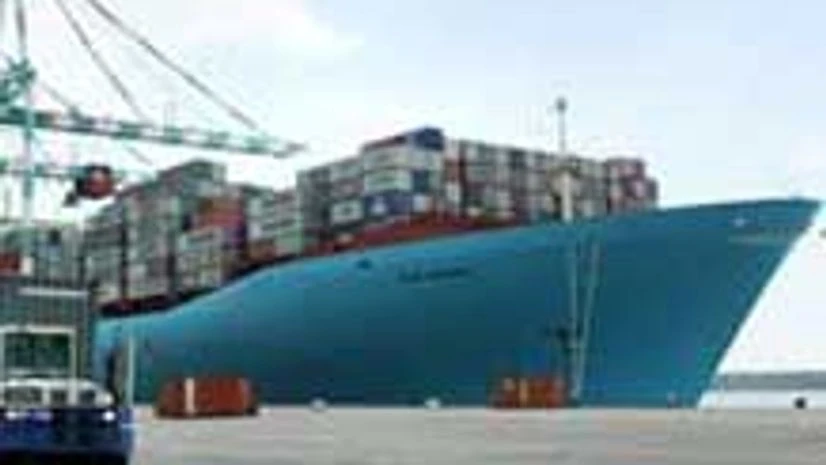Commerce Secretary S R Rao has exuded confidence that merchandise exports growth would continue to be in double-digits in August and this upward trend is expected to continue in the months to come, even as the widely-tracked HSBC Purchasing Managers’ Index (PMI) painted a dismal scenario for outbound shipments in the month.
Exports had risen over 11 per cent in July, year-on-year.
While exports will continue to rise during the remaining months in the current financial year, trade deficit is expected to narrow down on the back of import containment, Rao told Business Standard.
“Exports are looking up this month again while import containment is taking place. Exports sector is looking very promising now and we expect the trend to continue,” the commerce secretary added.
Rao also said the commerce department was still assessing the outcome of the issues discussed during the Board of Trade meeting that took place last month and, accordingly, sectors will be identified to give more support if and when required.
“An inter-ministerial consultation is going on, on what kind of sops are to be given and which all sectors need it,” he added. Since the beginning of the financial year, July was the first month when exports jumped by an unexpected 11.64 per cent, reaching $25.83 billion compared to $23.14 billion in the same month last year. On the other hand, imports in July reached $38.10 billion, down 6.20 per cent from $40.62 billion in July last year.
The rise is mainly due to the sharp fall in the rupee, which fell by over 20 per cent since April. Some export sectors such as textiles, leather, handicrafts, engineering and carpets are showing promising growth as the import content in these are much less.
Ravi Toshniwal, joint managing director of Banswara Syntex, which boasts of clientele such as Marks & Spencer, Levi’s, Dockers and Next, said going forward, the trend seemed encouraging. “We expect a very healthy run mainly because our pricing strategy has become better compared to China. Our clients in the US now prefer us over China. If we have become 20 per cent cheaper, they have become 5 per cent more expensive.
Entire garment industry looks positive. But challenge remains in getting the work-force back. This is one of those rare opportunities in which we could have beaten Bangladesh, Vietnam and China.”
However, Markit Economics, a financial information firm, which compiles PMI data, said export orders declined in August, breaking an 11-month rising trend.
Exports had risen over 11 per cent in July, year-on-year.
While exports will continue to rise during the remaining months in the current financial year, trade deficit is expected to narrow down on the back of import containment, Rao told Business Standard.
“Exports are looking up this month again while import containment is taking place. Exports sector is looking very promising now and we expect the trend to continue,” the commerce secretary added.
Rao also said the commerce department was still assessing the outcome of the issues discussed during the Board of Trade meeting that took place last month and, accordingly, sectors will be identified to give more support if and when required.
“An inter-ministerial consultation is going on, on what kind of sops are to be given and which all sectors need it,” he added. Since the beginning of the financial year, July was the first month when exports jumped by an unexpected 11.64 per cent, reaching $25.83 billion compared to $23.14 billion in the same month last year. On the other hand, imports in July reached $38.10 billion, down 6.20 per cent from $40.62 billion in July last year.
The rise is mainly due to the sharp fall in the rupee, which fell by over 20 per cent since April. Some export sectors such as textiles, leather, handicrafts, engineering and carpets are showing promising growth as the import content in these are much less.
Ravi Toshniwal, joint managing director of Banswara Syntex, which boasts of clientele such as Marks & Spencer, Levi’s, Dockers and Next, said going forward, the trend seemed encouraging. “We expect a very healthy run mainly because our pricing strategy has become better compared to China. Our clients in the US now prefer us over China. If we have become 20 per cent cheaper, they have become 5 per cent more expensive.
Entire garment industry looks positive. But challenge remains in getting the work-force back. This is one of those rare opportunities in which we could have beaten Bangladesh, Vietnam and China.”
However, Markit Economics, a financial information firm, which compiles PMI data, said export orders declined in August, breaking an 11-month rising trend.
“New business from abroad fell, ending an 11-month sequence of growth. Anecdotal evidence suggested that competitive pressures increased and that demand from key export clients was weaker,” said Markit Economics.
According to the Federation of Indian Export Organisations (FIEO), from October onwards, exports might grow by more than 20 per cent.
The commerce department is also pushing hard to bring export credit lending under the priority sector lending to make available export credit at cheaper rate.
A double-digit jump in exports and a fall in imports caused India’s merchandise trade deficit to narrow by 30 per cent, y-o-y, in July. Imports declined partly due to a contraction in gold imports, on the back of recent restrictions imposed on it, according to Crisil.
It said, however, to bring down imports substantially, it is vital to arrest the surge in coal imports, which have more than doubled in the past five years reaching $14.7 billion in 2012-13 from $3.7 billion in 2006-07.

)
